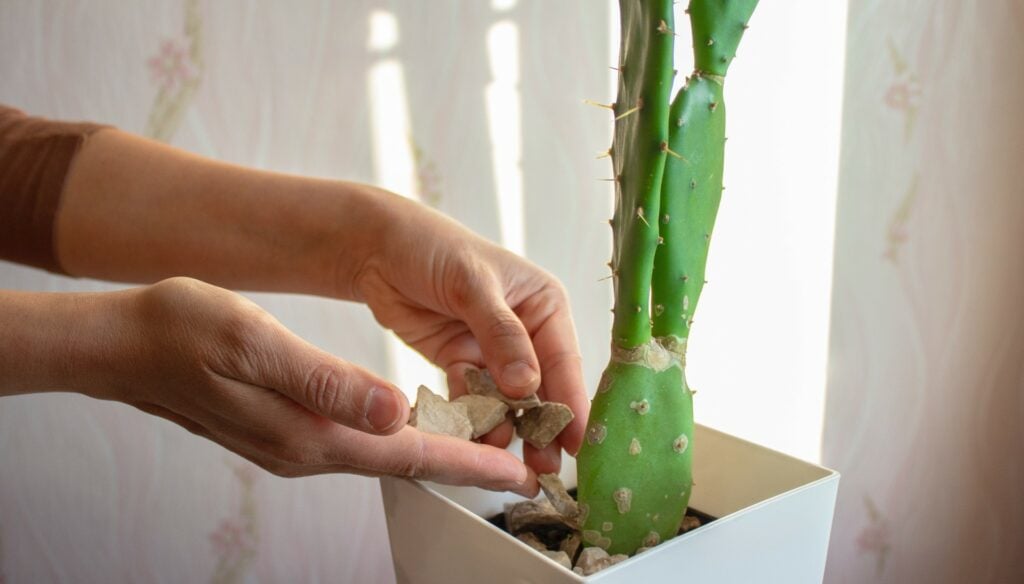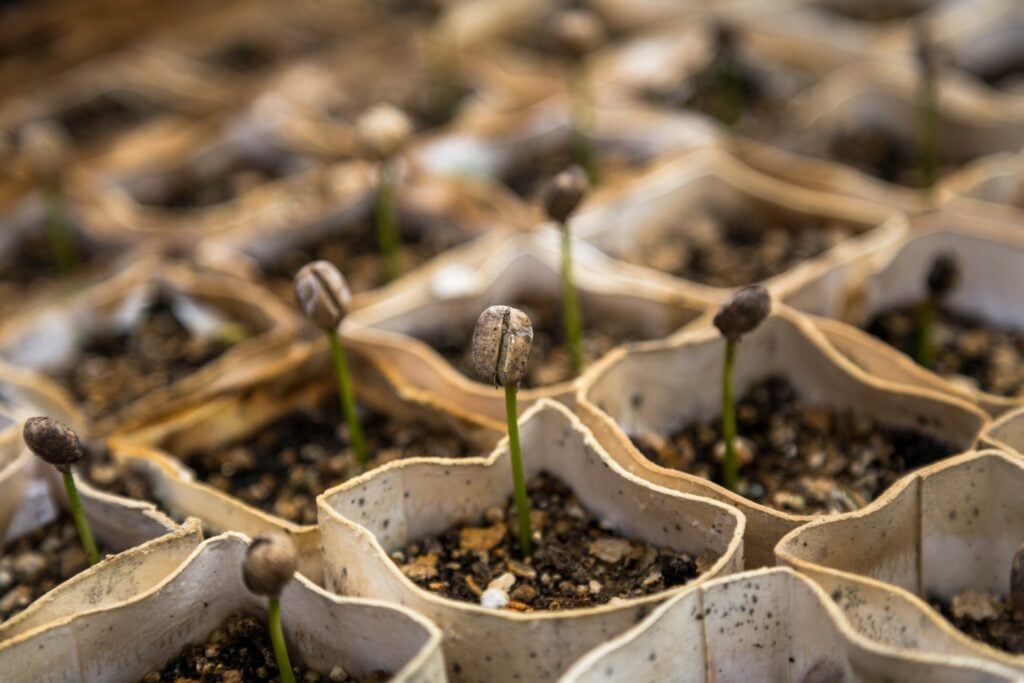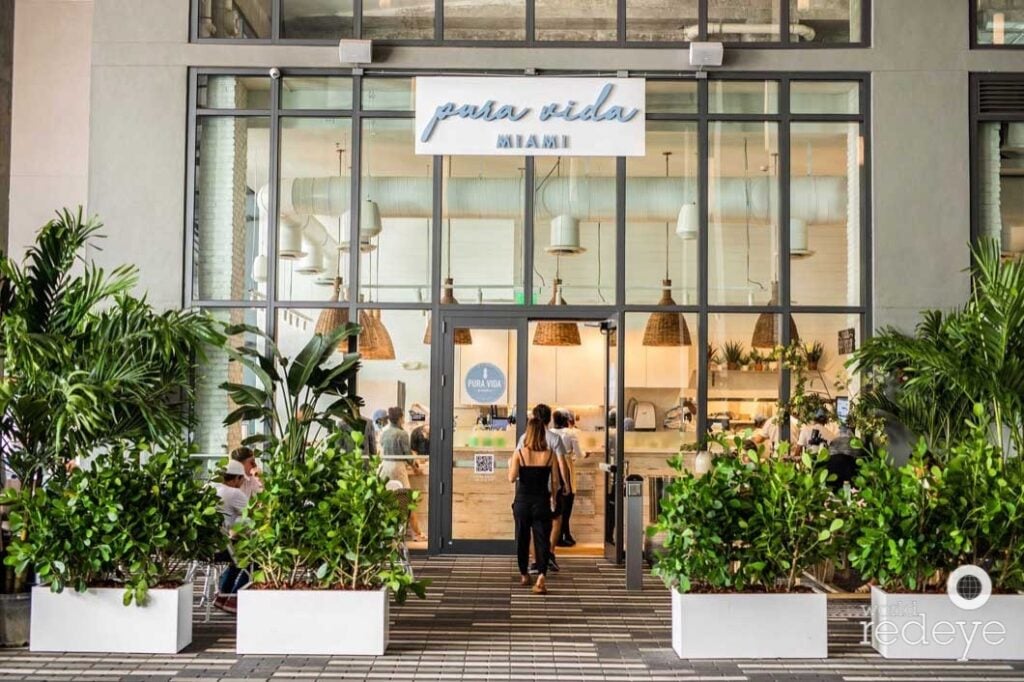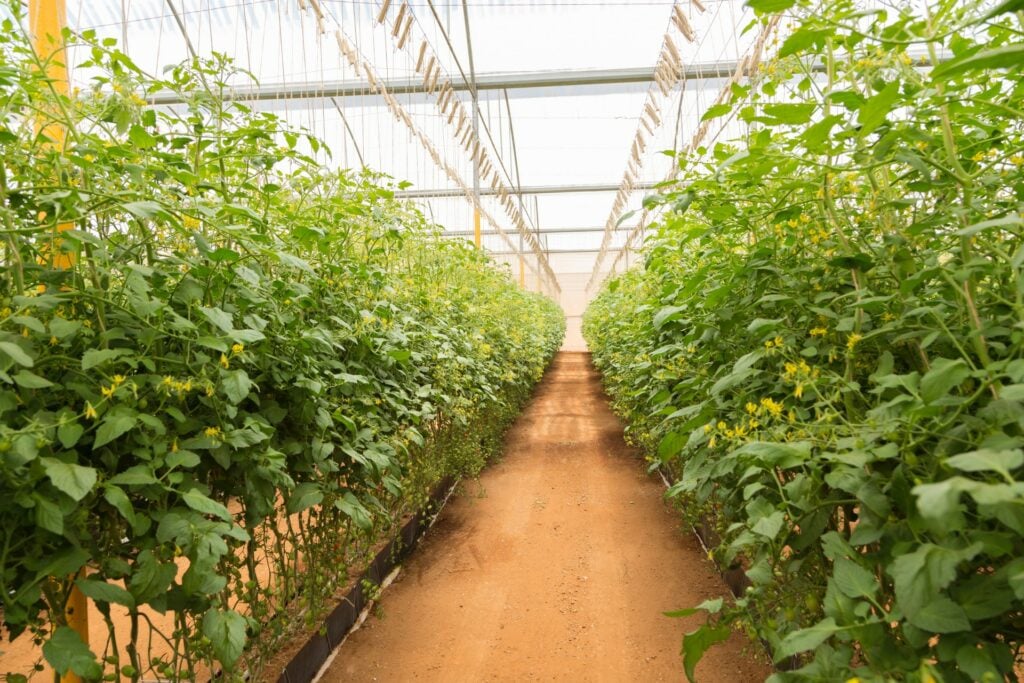If you wish to be your own boss and have a green thumb, then a plant nursery business might be just right for you! Besides having an entrepreneurial spirit, you will need to acquire a decent understanding of plants, soils, labor management, packing, shipping, marketing, and many other things to thrive in your plant business.
This beginner’s guide will walk you through the process of starting your own plant business from A to Z!

Benefits Of Having An Indoor Plant Care Business
When having a plant business of your own, you gain independence and control over your life. This means you are free to choose what is best for your plant care business and are responsible for your own success!
In most nurseries, in comparison to other businesses, the start-up capital for an indoor plant care business is relatively minimal; your greatest expenditures will be insurance and transportation. You may handle your own bookkeeping, and if you can secure larger clients, such as office complexes or shopping malls, you’ll have a steady stream of cash.

Drawbacks Of Selling Plants
Although it’s a growing industry, plant care is a luxury service. You will thus probably be first on the list for budget cuts when people’s wallets are tight. A steady income might be difficult to come by as a result.
Dealing with insect infestations is an additional burden. They may swiftly destroy plants, spoiling your effort and perhaps compromising your reputation, and it’s typically not your fault.

Beginners Guide To Starting A Plant Business
Though formal training is not needed to start a plant care business, these are a few basic steps to follow:
Creating A Business Plan
Do Your Research
You should have a look at the local market and check what the competition is doing to start a plant business. Analyze the market to see what services are already offered and where a gap could exist for you to fill.
Additionally, you should consider what trends exist in the plant world. Consider what locals are purchasing if you’re shopping for nursery stock.

Allocating Your Budget
Entrepreneurs need to invest money in order to start a plant shop. Therefore, plant businesses should think about several potential costs before opening any type of plant store, including:
- Construction of greenhouses
- Irrigation systems
- Business license and permission
- Space rental
- Plantation sources
- Tools & equipment required
- Online platforms
- Hiring employees
- Marketing and advertising
- Other supplies
You may save money by doing your own bookkeeping and customer management. That means you’ll need to set up:
- An accountancy system
- A customer relationship management database
- A project management system of some kind
- A business bank account
Business owners should consider the POS system while making plans for the plant shops. With the most complete POS app available, ConnectPOS will assist in integrating your sales channels. Additionally, to assist with data synchronization across digital and offline shops, it also enables your clients to simplify the payment process.
Enhance Your Plant Care Skill
Before you invest a lot of money, do your research. Purchase books and magazines about plants. Examine various locations’ plant nursery setups, talk to other nursery owners and join professional organizations.
Work with your local Small Business Center to learn about hiring procedures and other aspects of running a small plant business. Attend seminars, and classes, and learn everything you can about how to grow and cultivate plants.

New to gardening? Learn these 5 gardening tips for beginners.
Begin Promoting Your Plant Business
Consider creating a batch of unique business cards or fliers to put off around your neighborhood if you’re working with an in-person company, such as selling plants, where you’ll be at your client’s premises.
You should also consider:
- Making a website
- Taking stunning product photographs
- Creating social media accounts
Don’t forget to create a marketing plan, or you risk having one hand in all the marketing cookie jars.
Choosing Your Plant Care Services
Plant care can be divided into three categories:
- Backyard growers sell their plants, and they typically hold many monthly garage sales in their front yards.
- Retail nurseries are often smaller businesses that sell plants mostly to homeowners.
- Wholesale nurseries are often bigger operations that grow plants and sell to municipalities, growers, retail stores, and landscape architects.
Based on your knowledge, time availability, and desire to work on your plants full- or part-time, decide what sort of plant nursery you want to create.
Starting A Backyard Nursery
Acquire The Proper Gardening Tools
If you have a green thumb, you may already have several of the essential gardening equipment to grow plants. Nevertheless, you should get any items you don’t currently have. If you’re going to be planting a lot, invest in a wheelbarrow so you can easily transfer the dirt according to the plants you’re cultivating.
Concentrate On 1-2 Plants Only
Your location and the climate there will affect the plants you decide to cultivate in your garden whether indoors or outdoor plants, so only select a minimum of two or three plant species that you are enthusiastic about.
Choose plants you are familiar with cultivating and that you believe will be well-liked by your neighborhood’s plant lovers. Invest in seeds, then sow them. As your plants grow, be sure to check in daily to give each plant the water, sunlight, and attention it needs.

Advertise Your Sales Online And In Your Community
Create a straightforward advertisement with the date, time, and place of future deals. Include a few pictures and the name of your own nursery. At least one week before a sale, post to local Facebook groups, Facebook Marketplace, and your other social media platforms.
Consider placing some advertising in your local newspaper or on its radio stations if you believe there are many potential customers there.
To let people know when you’re having a sale, print some flyers with the same information and put them up throughout your neighborhood to gain more loyal customers.
New to online advertising? Here are some digital marketing strategies your business might be missing out on.
Set Your Plant Prices
Even though plant prices might vary greatly depending on the species, you should base your pricing on local demand while also taking the cost of cultivating the plants into consideration.
Look at nearby flower shops and plant shops or the local garden center to see how much they sell plants for to get an idea of the market demand locally.
If you can undercut them and still make money, do it to make a significant entrance into the local market.
Revise Your Business Plan
Interact with your customers when you’re selling. Talk about what they’d want to see in the future, and offer out your business card or brochures with your contact information.
When you’ve finished selling your plants, total your profits and decide what to do next depending on your feedback from your existing customers and the money you made.
Top tip: Don’t adjust your prices if you sold out and are satisfied with your profit margin to encourage loyal customers to buy more plants. Otherwise, increase them to increase revenue or decrease them to increase inventory sales. Use additional promotions to spread the word if you’re underselling and can’t permanently cut your rates any further.
Running Retail Nurseries
Renting Your Own Space
Start by looking for business properties in your neighborhood that are available for rent or purchase. When searching, keep your budget in mind and request that realtors and brokers show you rooms with plenty of natural light and ventilation.
Once you’ve rented a place, start to work organizing your area and ordering basic supplies.
Top tip: Do not rent spaces with carpets. You’ll be watering your plants to keep them healthy, and it’s impossible to keep carpeting from growing mold and generating a horrible and unpleasant odor if it’s constantly moist.

Plant Your Seeds In A Separate Spot
Purchase your seeds from reliable suppliers. When your plants reach maturity, dig around each one and remove it from the ground using gardening tools. Before placing the plants out for sale, if you have a storefront, bring the ones you want to sell and put them there in attractive pots.

Attractive pots are our forte. In fact, our wholesale planters are above-class in durability, function, and beauty.
Purchase More Plants And Supplies
When your store opens, you’ll need to hold some plant shows or start advertising your products and services. Purchase plants from the categories you can’t or won’t cultivate.
Buy some gardening equipment, pots, and soil from wholesalers in case your customers require them. Retail stores typically sell these items as well.
Related article: Best Potting Soil for Indoor Plants!
Hiring Employees
To save money when you are setting up, think about having the assistance of family members and friends. You’ll have an idea of your cash flow after you open.
Running a plant nursery by yourself is also possible, especially if you have a small operation

Adjust Prices And Refocus Your Efforts
If succulents are selling out quickly, change your growing practices to make room for additional succulents. Conversely, stop growing cactus plants if you can’t sell any. Depending on your sales, change your prices and nursery stock.
Starting Wholesale Nurseries
Contact Nearby Flower Shops, Retailers, And Vendors
Inform the local companies that you are opening a plant nursery by getting in touch with them. Ask them whether they’d be interested in doing business with you if you know that you’re going to concentrate on a particular species or type of plant. Ask what these shops and merchants have problems getting their hands on if you’re not sure what you’re going to cultivate.
Sign Agreements With Nearby Companies
Create a contract by writing it yourself or getting a lawyer to do it for you. Include your pricing for each sale, your duties, and any delivery instructions.
Wholesale contracts are often very valuable, so protect yourself by having a buyer sign them after they’ve committed to buying from you.
Create A Nursery Space And watch Your Plants’ Grow
The first batch of plants may take anything from a week to six months to grow, depending on what you’re planting. Plan 2-3 distinct nursery locations to grow in intervals so that you may transport your plants just before your customers need a new supply.

Top tip: Never underplant. Whether it’s due to the environment, pool pest control, or the weather, you’ll lose some of your plant stock over time. Have a few extra plants on hand as a backup.
Check out our article on 5 Best Tips For Indoor Plant Care.
Attend Local Garden Centers And Plant Shows
Attend local plant displays and conventions whenever possible to network with other farmers and potential customers.
Give your business card out and try to make as many connections as you can. This is a simple technique to make sure you’re advertising your plant nursery services to the most potential clients.
Starting A Landscape And Interior Design Service
Because plants really do make the world more beautiful, more and more people and business owners are using indoor gardening to make their spaces seem better. This may be the ideal company for you if you have a talent for creating exquisite indoor plant arrangements.
You’ll design plant displays to connect a space as part of your indoor landscaping business. Even better, combine your gardening and maintenance offerings to convert one-time clients into devoted patrons.
Lack of ideas for your business? take a look at our blog on 10 Outdoor Designs and Commercial Landscaping Ideas.
About The Market
Commercial clients will pay you more money and need less driving time than residential clients, especially if you sign up with big enterprises, office parks, or buildings where you can serve a large number of clients at once.
Restaurants, hotels, and institutions are also potential targets. Deliver brochures by hand to potential clients. Place adverts in the local newspaper, or even establish a referral network at garden centers and nurseries to get started.
Equipment
All you actually need are soil probes (normal size and maybe a 4-footer for those tall indoor palms), watering cans, a pair of plant snippers, chemical insecticides, plant fertilizers, and a trustworthy car to get you around.
Setting Up
You will also need to prepare:
- Your company name. Pick one that is pertinent to your company and will make your company stand out.
- A business permit.
- You may advertise with business cards, flyers, or, if you have a limited budget, in the newspaper or the yellow pages.
- You may build a website on a budget after you start earning a nice wage and, of course, let people know about your business.
- Participate in neighborhood activities to spread the word about your company.
- Dress professionally and be well-groomed by wearing uniforms. This shows prospects that you take your work seriously.
FAQs
How Profitable Is A Plant Care Business?
Smaller, backyard nurseries might make $7000 to $40,000 yearly. On a modest nursery scale, a potted plant may cost $1 while a specialty plant (such as a rare orchid) might cost $100s.
For large-scale nurseries, the yearly ranges range from $40,000 to $625,000. Large nurseries provide thousands of trees or acres of ground cover for sale. Japanese maples have been the most common plant in recent years.

What Is The Most Profitable Plant To Grow Indoors?
According to a Money.co.uk study, the most profitable plants that you can find in your garden are the Monstera Thai Constellation, the Monstera Dubia, and the Alocasias and Caladiums…
Final Thoughts

The most important thing when designing a garden aesthetic is using durable, reliable, and gorgeous planters.
Paired with your plants, our Jay Scotts professional-grade planters will ensure the happiness of your customers by offering a beautiful piece of functional decor that fits in any space or interior design. Using our planters, the botanic needs of your customers are met and exceeded.
Whether you’re supplying plants to homeowners or large commercial enterprises, Jay Scotts planters are ideal for any plant project big or small.
All of our planters come with an industry-leading warranty, highlighting our dedication to quality and the affordability of our fiberglass planters.
Want to offer our planters to your new customers? Contact us today to learn more about the exciting opportunities our wholesale range can deliver!
Or better yet, give us a call and our sales consultants will be more than happy to walk you through any outstanding questions or requests you might have.
